Cloud Computing for Small Business
Is Your Business Ready To Move to the Cloud?
Cloud computing for small business offers a number of significant advantages – from lower costs to enhanced data security.
Once your data is stored safely in the cloud, you’ll have peace of mind knowing your sensitive customer and proprietary data is safe and protected.
For many businesses, data backup and cloud computing are not exactly #1 on their list of priorities. But the reality is, if your small or mid-sized business is not backing up data to the cloud, many security experts believe it’s not a matter of if, but when a hardware failure or malicious attack will take place.

Our IT support and services have been rated 5 / 5 based on 10 testimonials from our clients.
Cloud Services
7 Signs Your Business is Ready for the Cloud
Unfortunately, between busy work schedules and day to day operations, business owners and managers often fail to ask these important questions:
- Are we confident company data is safely backed up to our cloud server?
- If there was a sudden hardware failure, would it put our company and data at risk?
- How quickly can we retrieve our data and what are we looking at in terms of downtime?
- When was the last time we tested our backup? Are we 100% confident it works?
Large enterprises have been relying on the security and safety of the cloud for quite some time, and today, many small businesses have followed suit. But how do you know when the time is right to move to cloud computing for small business? Here are 7 key signs to know when you’re ready.
#1. You Have Good Internet Connectivity
To work within the cloud effectively, you’ll need a strong, reliable internet connection, as well as a good download speed. Since the data you’re backing up will be moving across the wire, you need to be certain you have sufficient bandwidth to move all your files. Without these high connection speeds, you may experience network slowdowns, which, in turn, can hamper productivity and interfere with the things you need to accomplish each day.
Slow download speeds can also put your cloud-based backups at risk, effectively negating one of the biggest benefits of cloud computing – data backup. If your online connectivity is spotty or unreliable, you may think your files are being backed up, but those backup copies could be corrupted or incomplete. Before you move to the cloud, confirm that your internet speed is at least 10mbps. Work with your internet service provider to test your actual download speeds before moving to the cloud to ensure you’re ready to make the transition.
#2. Your Employees Work Remotely
The widespread availability of Wi-Fi connections and virtual private networks has freed employees from their cubicles, giving them the ability to work from just about anywhere.
 If employees have a great idea in the middle of the night, they can act on it immediately without a time-consuming trip to the office, making your life – and theirs, a lot easier.
If employees have a great idea in the middle of the night, they can act on it immediately without a time-consuming trip to the office, making your life – and theirs, a lot easier.
In fact, providing employees with the opportunity to work remotely can enhance productivity, improve morale, and encourage creativity and out-of-the-box thinking. Once cloud computing is integrated into the workplace, employees can access the resources they need from anywhere there is an internet connection.
#3. Your Hardware is Approaching End-of-Life
The hardware within your small business plays an important role and represents a significant investment:
- Your servers store data and make it readily available to your workforce.
- Your routers provide the connectivity employees require to do their job.
- Your firewalls keep your network safe and protected.
But even the best hardware has a limited lifespan, and when that useful life comes to an end, you have an important decision to make. Chances are, some your hardware is quickly approaching end-of-life. Now what?
If your servers, routers or other hardware is reaching its end-of-life date, you could invest in replacement systems, pouring more money into what will quickly be an outdated approach to data storage and protection. Or, you could jump on the bandwagon and, like larger enterprises, integrate cloud computing for small business into your organization. Yes, even small businesses can take advantage of enterprise-level technology and security through the cloud.
Cloud services like Microsoft Azure provide you with the ability to run Remote Desktop Service or you can go with a cloud workspace. Rather than investing heavily in hardware that will reach its end-of-life in just a few years, you can automatically back up files to the cloud and protect your proprietary information through state-of-the-art servers and top-of-the-line equipment.
You might even be able to replace those outdated Windows XP computers with less costly thin clients, freeing up additional resources to invest in the future growth of your business.
#4. You Have Multiple Locations or You Are Changing Locations
If your company already has multiple locations in place, shifting resources to the cloud can offer your organization a number of important benefits like:
- Lower costs: Once your hardware reaches end-of-life, particularly if you have multiple locations, allocating resources into new hardware requires a significant investment. Whether you’re changing locations or looking to streamline your network between locations, moving to the cloud can help you not only lower costs, but also gain additional office space that might otherwise be occupied by bulky hardware components.
- Elimination of redundancies: If you rely on local resources, opening a new office could mean buying a second server and additional routers to connect your existing locations with your new one. Moving to the cloud eliminates these redundancies.
- Greater efficiency: Relying on local control means hiring additional IT staff when you add locations or move to a new office. When you move to the cloud, you don’t have to worry about those costly hiring decisions.
- Easier cross-training: Opening a new location gives you the ability to share resources and personnel, but only if your cross-training program is robust and efficient. When you move to the cloud, connections are location-independent, making it easier for your existing staff members to work from any available office space.
Whether you are opening your second office or your tenth, cloud computing for small business makes your organization more efficient and easier to run. From easier cross-training to lower hardware costs, a move to the cloud can benefit your multi-location business in many different ways.
#5. You Lack a Disaster Recovery Plan
If your small business doesn’t have a robust disaster recovery plan in place, you’re living on borrowed time. The loss of a single server could wipe out years of vital files and irreplaceable information, and if you’re still relying on local resources (such as tape backup), you may never be able to get that data back. Recovering from a disaster is something every business owner needs to think about, especially since 80% of businesses affected by a major incident either never re-open or close within 18 months.
When you move your data to the cloud, the bulk of disaster recovery planning is done for you. You will still need to work out a contact system and create a telephone tree, but you can have peace of mind knowing your irreplaceable data is stored safely in the cloud. Instead of living in fear of a server crash, you can simply log on, download the latest backups of your files and move forward with business as usual.
#6. You Are Experiencing Rapid Growth
Growth is something that every small business owner should be aiming for, but periods of rapid growth can be challenging, to say the least. During periods of rapid growth, it’s easy for small businesses to outgrow their physical infrastructure and existing network.
If your business is experiencing rapid growth, or if you see strong growth in your future, moving to the cloud can make those changes easier to handle. Instead of spending your time pricing new servers and upgrading your data room, you can simply move your data to the cloud. Rather than backing up servers and workstations manually, you can simply establish your cloud backup schedule, giving you one less thing to worry about.
#7. You Need to Protect Sensitive Information
When you run a small business, you’re responsible for the integrity and protection of sensitive customer data. A single breach could destroy customer trust and harm your reputation.
If your small business needs to protect sensitive information, a move to the cloud environment can help you save time, maintain compliance and reduce security risks.
By automating your backups, enhancing your data security and moving to the cloud, you can protect this sensitive information in a much more effective and efficient manner. With end-to-end encryption and secure storage, cloud services help you protect proprietary company data, sensitive customer information and everything else your business needs to function on a daily basis.
Streamline IT Costs, Strengthen Network Security
If one or more of the areas we’ve covered sounds familiar, it might be time to move your small business to the cloud.
Moving to the cloud can help your small business in wide variety of ways. We’ll help you understand how your organization can best utilize cloud computing services like Microsoft Azure.
Contact Ontech Systems online or by phone at (262) 522-8560 and request a no-obligation, Free Network Discovery where one of our Network Consultants will evaluate your network along with any overlooked aspects of data recovery, security performance and infrastructure that might otherwise remain unnoticed, until disaster strikes.
Cloud computing has come of age – it’s more efficient, more secure and more cost-effective than ever before. Times are changing fast – is your business ready? Contact us to learn more about cloud solutions today.







